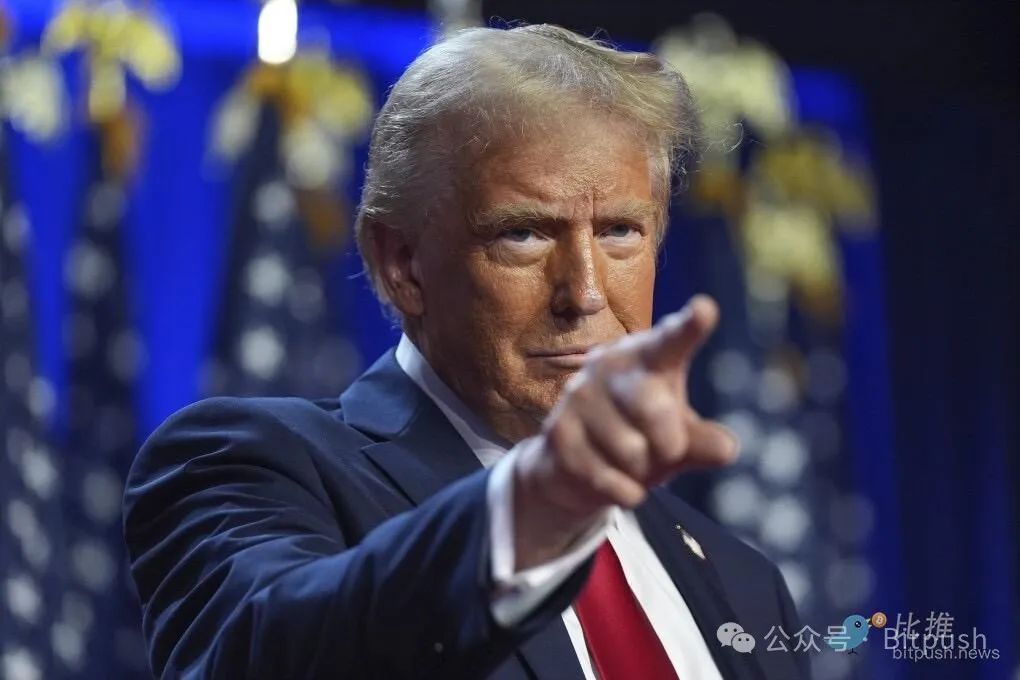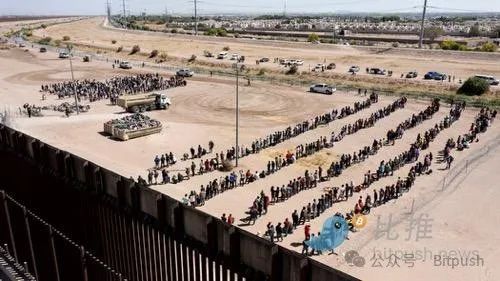In the early morning of November 6th local time, 78-year-old Trump defeated Democratic candidate Harris with a crushing advantage and became the 47th President of the United States.
Financial markets reacted enthusiastically to the news, and the "Trump trade" continued to fire at full steam. On the day of the victory, the three major U.S. stock indexes and Bitcoin hit record highs, the market value of cryptocurrencies exceeded $2.6 trillion, and the U.S. dollar index rose to 105, the highest in nearly four months.
Historically, U.S. stocks have risen regardless of which party holds the White House, with Democrats having averaged greater gains since 1945. But Republican control could mean a significant shift in the landscape. Of course, that depends on whether Trump's Republican Party can win control of Congress, which it has already done. While control of the House of Representatives has not yet been finalized, the Republicans have a clear advantage. Polymarket data shows the Republicans have a 99% chance of winning control of the House of Representatives.

Trump's overwhelming victory comes at a critical juncture in American politics and the global economy. The next four years will be full of uncertainty and challenges, and will have profound and complex impacts on all industries.
“The Golden Age of Crypto”
On the bright side, the "real money" of the crypto industry bosses has not been wasted. Trump has promised to make the United States the "global cryptocurrency capital" and never sell the Bitcoin held by the government now or in the future.
Trump has also positioned himself as a pro-crypto candidate, vowing to end what he calls the “witch hunt” of the industry and secure more crypto-friendly legislation in the U.S.

“The future of cryptocurrency has never been brighter than it is today,” said Kris Marszalek, CEO of Crypto.com.
Donald Trump’s victory in the U.S. presidential election will catalyze a “golden age for cryptocurrency” as the new administration will improve the regulatory environment, Bitwise chief investment officer Matthew Hougan said in a Nov. 6 memo.
The crypto industry has been in a state of restraint over the past four years. Given that Trump has been friendly to the cryptocurrency industry during the campaign, the new government is expected to provide support after taking office, such as changing the leadership of the SEC and terminating "Operation Chokepoint 2.0".
If these verbal supports can be successfully implemented, the crypto industry will usher in the spring of regulation and the frenzy of institutional investment. By then, the industry will be more standardized, innovation will be more vigorous, and cryptocurrencies are expected to be truly integrated into the global financial system.
Tariff butterfly effect, global industrial chain "earthquake"
Trump has said that if he is re-elected, he will significantly increase tariffs on foreign goods imported into the United States, such as imposing tariffs of up to 20% on foreign goods, 60% on Chinese imports, and even 200% on certain imported cars.
High tariffs will directly lead to a reduction in import quantities, and some economists have warned that Trump's trade protection proposals will have a "shock" on countries around the world, including the eurozone and the British economy.
Ahmet Kaya, chief economist at the National Institute of Economic and Social Research (Niesr), said Britain would likely be "one of the worst affected countries" under such a plan, with growth expected to slow to 0.4% by 2025 from a forecast 1.2%.
British Chancellor of the Exchequer Rachel Jane Reeves said Britain would "strongly make the case" to Trump for the need for free and open global trade. She said: "The United States also benefits from free and open trade with us and the rest of the world, and the benefits of this open trade make us a win-win for all."
Tariffs are an important tool of trade protectionism. Although they may bring some benefits in the short term, they often backfire in the long run. If Trump hopes to stimulate the US economy through trade protectionism, not only will it be more difficult for low-income countries to use export trade as a growth point, but the increased tariffs will probably be paid by US consumers in the end.
Inflation is getting worse
The Democratic Party’s defeat is actually a reaction to the long-standing grievances of the American people. In recent years, the soaring prices and housing prices, shrinking wallets and savings in the United States have made middle-class and low-income voters dissatisfied. Voters have gradually lost trust in government officials, so-called liberal elites and left-wing media, which has brought serious negative impacts to the Democratic Party. Trump’s vow to “make America affordable again” has become one of his trump cards for victory.

However, investors are betting that Trump's plans for tax cuts and higher tariffs will push up inflation and slow the pace of rate cuts.
“Trump is going to impose 10% tariffs on all of his global partners,” said Andrzej Skiba, head of U.S. fixed income at BlueBay, RBC Global Asset Management. “That’s a big deal because it could lead to a 1% increase in inflation. If inflation goes up 1% next year, you could say goodbye to rate cuts.”
“The market is trying to figure out what’s going to happen next, but right now, the market is pricing in higher growth and higher inflation prospects,” said Peter Esho, founder of Esho Capital.
A big part of the reason for the record highs in U.S. stocks this year is the expectation that the Federal Reserve will cut interest rates as inflation is falling back to its 2% target level. CME Fedwatch data shows that the Federal Reserve will announce its latest interest rate decision on Thursday, and the market still expects the Federal Reserve to cut interest rates, but traders have lowered their expectations for the number of rate cuts by the Federal Reserve by the middle of next year.
“Massive deportation of illegal immigrants”
In recent years, American society has become increasingly divided, and the deportation of illegal immigrants has become an issue that some populists often use. They believe that illegal immigrants have taken away jobs from locals, increased crime rates, and increased the burden on society. They have successfully diverted people's attention from deep-seated problems such as economic inequality and social injustice, and instead directed their attacks at vulnerable groups.
The policy of expelling illegal immigrants will further aggravate social divisions and intensify conflicts between different ethnic groups and social classes.

Trump has promised that one of the first actions he will take after taking office is to deport millions of illegal immigrants on a large scale, but this is not an easy task. Although the president has certain powers on immigration issues, carrying out large-scale deportations faces considerable challenges at the operational level.
Organizations such as the American Immigration Council estimate that it will cost billions of dollars for Trump to implement his deportation plan, which could also have a huge impact on the economy if industries such as construction, hospitality and agriculture lose a large number of workers. In addition, there are resource challenges, and the U.S. Immigration and Customs Enforcement agency must choose where to focus its limited resources.













